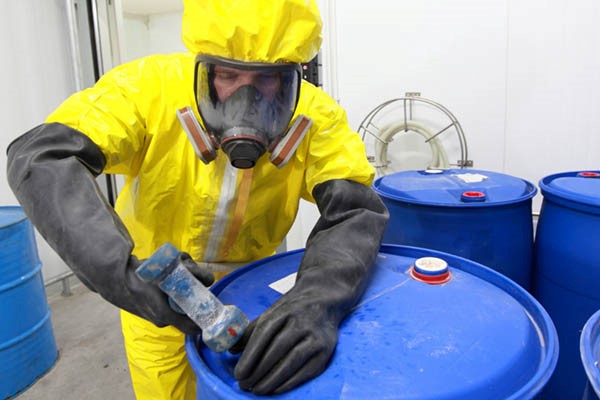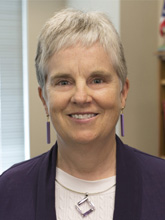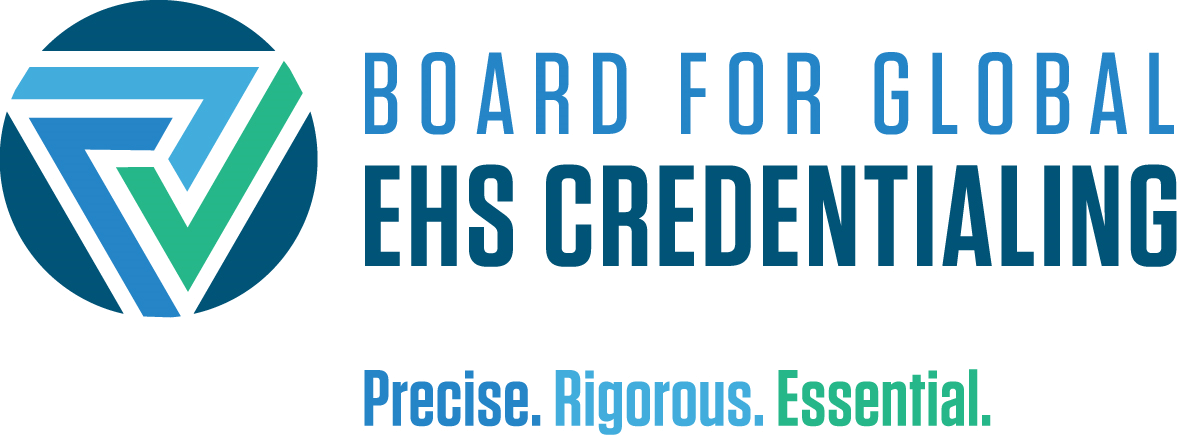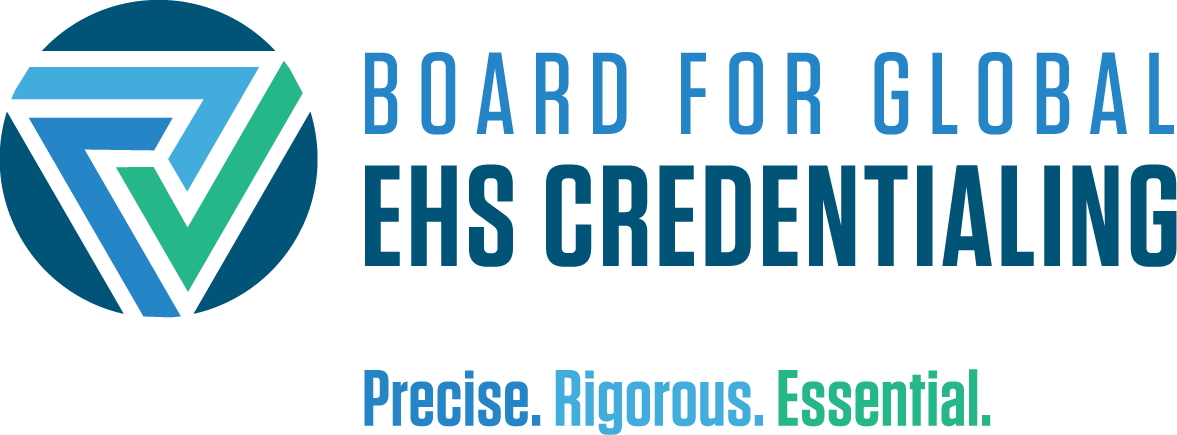
ENVIRONMENT
Qualified Environmental Professionals (QEPs) and Environmental Professionals In-Training (EPIs) develop creative and effective solutions to prevent, minimize, reduce or remove the impact of human activity on air, water, and soil; enabling a cleaner and healthier environment
CERTIFIED
What is the Qualified Environmental Professional (QEP) Credential?
The Qualified Environmental Professional (QEP) credential is the first and only international, multi-media, multidisciplinary, fully accredited credential that requires environmental professionals to have a broad perspective and the knowledge and skills to solve real-world environmental problems. Through the QEP certification, environmental professionals demonstrate the breadth and depth of their knowledge and experience by meeting eligibility requirements, which include having the requisite educational background and experience and passing the General Environmental Science (GES) exam and the Qualified Environmental Professional (QEP) exam. The QEP examination is international in scope; it contains no questions related to policies or regulations specific to any country. Once achieved, the QEP credential indicates that the environmental professional has demonstrated their ability to apply their education and experience to a wide range of environmental issues.
The QEP credential is a unique credential, awarded to individuals who have demonstrated that they can identify and address environmental issues that may have multi-media impacts. It recognizes that some environmental professionals become highly focused and specialized (e.g. in air, water, contaminated land, waste etc.) as their career progresses, while others may take on environmental management responsibilities. BGC places no restrictions or qualifications on career paths, and the QEP exam is structured so that most well-prepared candidates should achieve a passing score.
QEP certification not only demonstrates the breadth and depth of environmental professionals’ knowledge and experience, it also allows them to show their commitment to continued excellence in applied environmental science. QEPs adhere to a strict code of ethics and make contributions to the environmental profession and community.
Earning the credential lets you advance your career and stand out as a highly-skilled environmental professional. Our online roster of QEPs increases the visibility of this elite group among their peers and professional contacts; BGC also provides access to a professional badging service, LinkedIn groups, and a free Career Center for posting resumes.
How Do I Become a QEP?
You can achieve the QEP by meeting eligibility requirements and passing both a General Environmental Science (GES) exam and a QEP specialty exam. The 2024 GES and QEP Exam Blueprints can be found here.
Earning the QEP credential can be done through one of two routes depending on whether you have at least five years of professional environmental work experience when you apply:
Route 1:
Meet the following requirements and complete the following steps:
- Graduated with a bachelor’s degree or equivalent in environmental science, physical sciences, earth sciences, natural sciences, engineering, or mathematics and at least five years of experience as an environmental professional. For master’s level environmental degrees, one year of experience credit will be awarded if the program is accredited by the National Environmental Health, Science and Protection Accreditation Council (EHAC).
- Environmental professionals with eight or more years of experience with bachelor’s degree from any discipline.
- Submit a completed application form
- Because BGC already has some of the needed applicant data, there is a slightly different form for applicants who already have earned their CIH credential.
- Forward the link to the Professional Reference Questionnaire to at least 3 environmental professionals (supervisors, co-workers, clients etc.) who are familiar with your environmental work and ask them to complete and submit the forms. It is an applicant’s responsibility to ensure that at least 3 completed references get submitted.
- Pass two written exams: the GES exam and the QEP exam. You do not have to retake the GES exam if you have achieved the EPI designation.
- Commit to adhering to the BGC Code of Ethics and the BGC Ethics Case Procedures
- Pay fees on or before the due date.
Route 2:
If you have less than five years of professional environmental experience, you can work toward your QEP through a three-stage process through which you will first earn an interim designation as an Environmental Professional In-Training (EPI). Receiving this designation may help in your career search, and it will give you access to information and networking, for up to seven years:
- Meet the EPI educational and other requirements
- Submit a completed EPI application form
- Forward the link to the Professional Reference Questionnaire to at least 3 environmental professionals (including professors and course instructors) and ask them to complete and submit the forms. It is an applicant’s responsibility to ensure that at least 3 completed references get submitted.
- Pass the GES exam. Upon passing, you will be awarded the EPI designation
- Obtain at least five years of professional environmental work experience and meet any remaining QEP eligibility requirements.
- Pass the QEP exam.
- Commit to adhering to the BGC Code of Ethics and the BGC Ethics Case Procedures
- Pay fees on or before the due date.
For more information on the specific details of becoming a QEP, read the QEP Candidate handbook pages.
The following table summarizes the two routes is available to you:
| Eligibility | Professional Level Environmental Work | Minimum Education | References from Three Environmental Professionals |
| QEP | Five years | Bachelor’s degree or equivalent in physical sciences, earth sciences, natural sciences, engineering, or mathematics | Must include an individual with personal knowledge of your professional work and responsibilities |
| Eight years | Bachelor’s degree in any discipline | ||
| EPI | Less than five years |
College or University Senior: Enrollment in a bachelor’s degree program in environmental sciences, physical sciences, earth sciences, natural sciences, engineering, or mathematics Early-career professional: Bachelor’s degree or equivalent in environmental science, physical sciences, earth sciences, natural sciences, engineering, or mathematics |
Must at least be familiar with your academic abilities and achievements |
Testimonials
What our certificants say
People who hold the QEP certification often say that the QEP establishes a professional standard for new professionals and a vehicle for elevating the careers of established practitioners.

With a background in Health and Safety, obtaining my QEP was a goal I set for myself to expand my knowledge and show competency in the Environmental field. This has led to many opportunities, including my role today as an EHS Manager.
 I am a Health, Safety & Environment (HSE) professional, Fellow of American Society of Safety Professionals (ASSP), Chartered Fellow of IOSH – UK, and certified with CSP and QEP. I have 32 years of experience in HSE consultancy and HSE management in the oil and gas industries. I currently work as an HSE Consultant for Exploration and Drilling Directorate of Kuwait Oil Company, State of Kuwait.
I am a Health, Safety & Environment (HSE) professional, Fellow of American Society of Safety Professionals (ASSP), Chartered Fellow of IOSH – UK, and certified with CSP and QEP. I have 32 years of experience in HSE consultancy and HSE management in the oil and gas industries. I currently work as an HSE Consultant for Exploration and Drilling Directorate of Kuwait Oil Company, State of Kuwait.
When I moved to State of Kuwait in the year 2001 from India as part of my employment, I became a member of ASSP Kuwait Chapter. During this time, I interacted with several ASSP members from different parts of the World and got to know about the benefits of Certifications to improve competency as part of my career growth. I was inspired by Founding President of ASSP Kuwait Chapter and also my work Manager Mr. Ujwal Ritwik to go for QEP certification, and I completed all requirements during the year 2006 with his mentoring & guidance.
Truly speaking, QEP certification has helped me in solving several environmental problems faced in oil & gas industries, particularly remediation of historical contaminated soil generated during drilling operations. It also helped me in interacting with subject matter experts on issues related to the latest developments in the environment field.
I strongly recommend environmental professionals to go for QEP certification to find solutions for the ever increasing environmental challenges and to interact with leading subject matter experts in the environment profession.
I am also a Regional Coordinator of QEP and EPI Certifications for the Middle East Region and anyone interested to go for QEP certification can contact me.
 I am an environmental, health, and safety director and have been in the construction industry for 23 years. I am also a CIH, CSP, and now happily a QEP. The QEP is the ‘E’ in EHS credentialing. The QEP confirms my experience and capabilities in mitigating or managing environmental concerns for construction activities.
I am an environmental, health, and safety director and have been in the construction industry for 23 years. I am also a CIH, CSP, and now happily a QEP. The QEP is the ‘E’ in EHS credentialing. The QEP confirms my experience and capabilities in mitigating or managing environmental concerns for construction activities.
The QEP is the gold standard in environmental credentialing. The process of obtaining the QEP confirmed whether I met the standards and was rewarding. If you practice EHS and have the CIH or CSP, you need to take the time and achieve the QEP. Show your counterparts that the QEP deserves a spot next to your CIH.
 For the last 43 years, I have worked as a Sr. Environmental Health Engineer at the Nixon Peabody LLP law firm. I work at the intersection of legal requirements, what can be done with current technology and business decisions. For the last 15 years, I have focused mainly on water pollution control, protecting ambient water quality, and, basically, all things water. I have a mixed degree background with a Bachelor’s in Biology and a Master’s in Environmental Health Engineering. I felt that it was important that I demonstrate my competence by gaining an environmental credential.
For the last 43 years, I have worked as a Sr. Environmental Health Engineer at the Nixon Peabody LLP law firm. I work at the intersection of legal requirements, what can be done with current technology and business decisions. For the last 15 years, I have focused mainly on water pollution control, protecting ambient water quality, and, basically, all things water. I have a mixed degree background with a Bachelor’s in Biology and a Master’s in Environmental Health Engineering. I felt that it was important that I demonstrate my competence by gaining an environmental credential.
Because I did not work under a P.E., I could not get a P.E. license. For a few years, I became a credential groupie and applied for and obtained two other accredited environmental credentials. However, I felt that both of them were pretty narrowly focused and neither of them really reflected the diversity of the work I did. When the QEP credential was first announced, I was impressed by the fact that it required multi-media experience and that it was supported by multiple environmental professional membership organizations including (but not limited to) the Water Environment Federation (WEF) and Air & Waste Management Association (A&WMA).
Putting “QEP” after my name in my resume, email signature line, and elsewhere calls attention to the fact that Subject Matter Experts outside of my employer have examined me and deemed me to be well qualified. My employer later changed the job requirements for members of the law firm’s EHS technical team to earn a credential from an accredited entity in order to be promoted to the Senior level. I think other employers of environmental technical professionals are also requiring credentials. Because the QEP credential is both multi-media and international and is accredited under the rigorous requirements of the Council of Engineering & Scientific Specialty Boards, earning this credential demonstrates to the world that you have both the academic training and the experience needed to tackle complicated environmental issues and problems. If you have put in the time to gain this knowledge and experience, you should demonstrate this by earning your QEP.






